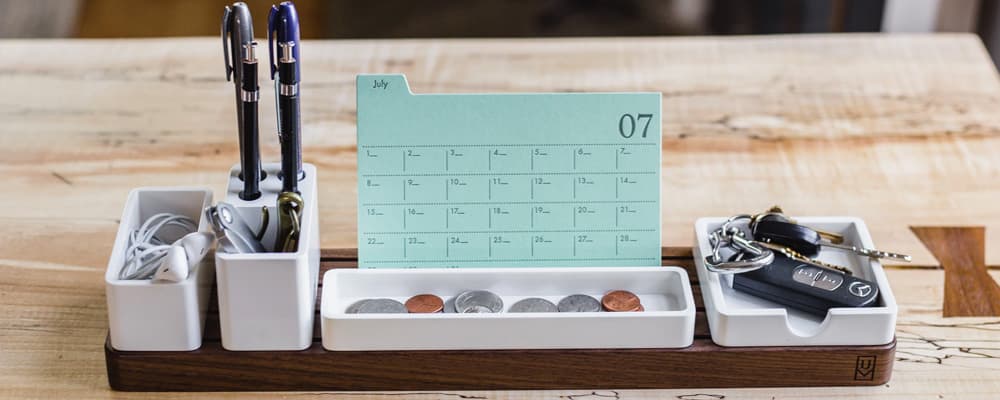It seems to be fashionable to declutter. Popular books, an even more popular Netflix series (with the pixie-like Marie Kondo and her konmari method) and suddenly the world seems to be talking about decluttering.
Quick Links:
When to start?
Planning is everything
Rules are made to be broken
Decluttering definitions
Decluttering destinations
Remember Mottainai
Your Next Stepz
There are sure to be psychology theses written on exactly why so many people are motivated to slimline their possessions, but there’s one thing most declutterers agree on – it feels good. There’s a sense of satisfaction and achievement that comes from a successful decluttering session.

When to start?
If you’re reading this, you’re probably approaching retirement, or have already retired, if so it’s an excellent time to declutter, for several reasons.
The first is that your day-to-day lifestyle has, or is about to change. Consequently, the items you’ll use regularly or even occasionally will change too.
Another reason to declutter is the prospect of downsizing. Even if you’re not planning on making an immediate move, decluttering is an excellent way of ensuring that you’re ready when the time comes.
Thirdly, be kind to your family. If you leave decluttering to the point where you are not able to do it alone, it’s family members who will have to shoulder the burden.
In short, the time to start decluttering is now.

Planning is everything
One of the golden rules of decluttering is Be Organised. It makes sense really, doesn’t it? In practice, it makes for a more efficient, enjoyable process.
Your decluttering plan is up to you, and you know the way you work best.
The first item to plan is the scope. Some people like to take on the whole house, garage, dog’s kennel, the lot. In one go. Others prefer to break it down into smaller tasks, decluttering a room, a cupboard or even one drawer at a time. Alternatively, the konmari method recommends decluttering by category, e.g. clothes, then books, then kitchen items etc.
Then, there’s scheduling. Give yourself a reasonable amount of time to declutter your target area and be ready to adjust the time you allow – most people find they become faster as they go.
HINT: Writing a decluttering plan is a good way to motivate yourself and commit to the task.

Rules are made to be broken
A quick internet search will show you more decluttering rules than you could possibly need. The six-month rule, for example, applies to items like tools and kitchen gadgets. It says that if you haven’t used something in the last six months, and you are not likely to in the next six months, out it goes.
Marie Kondo has said that to keep an item it has to “give you joy”.
In the Nineteenth Century, the English textile designer William Morris was more than 100 years ahead of today’s decluttering trend when he said “If you want a golden rule that will fit everything, this is it. Have nothing in your houses that you do not know to be useful or believe to be beautiful.”
Many declutterers find rules are too rigid, preferring to use common sense with an awareness that the goal of the process is to declutter. That is, to significantly (depending on your level of clutter) reduce the number of items in your home.
HINT: Try to avoid the hoarder’s temptation of merely moving things from one place to another.

Decluttering definitions
It will probably come as no surprise to hear that definitions of clutter vary widely. Before you start the decluttering process it’s a good idea to sort out your definition of clutter and how and where you are going to apply it. This is particularly important if there are more than one of you involved in the process – one person’s clutter can be another’s prized possessions!
HINT: ‘Out of sight, out of mind’ is not a decluttering strategy. Hiding things in cupboards, drawers and suitcases is not acceptable!

Decluttering destinations
Before you start decluttering, do a mental run-through of what you want to declutter and the destinations to which items will go.
Plan to sort as efficiently as you can. Sturdy plastic bags or even a trip to a storage facility (no, putting things into storage does not count as decluttering!) to buy some cardboard boxes can be a timesaver.
Have a spot for all items for each destination, e.g. rubbish tip, family members, charity shop, online marketplace etc.
HINT: Some people enjoy the process of selling unwanted items through online marketplaces such as Gumtree, eBay and Facebook. If you are inexperienced and would like to try, look for similar items to get a sense of price and how best to present them.

Remember Mottainai
Mottainai is a Japanese cultural concept with origins in Buddhist philosophy. While it is difficult to find an exact translation, it essentially refers to regret at the idea of waste and encourages what we know as the 5 Rs – reduce, reuse, recycle, repair and respect.
Decluttering should be more than taking the lazy option of sending everything to landfill.
Your Next Stepz
If you find the prospect of decluttering daunting, help is at hand. There are professional organisers who can provide you with everything from a plan you can implement to a complete service. It’s amazing how useful an independent view and experience can be.
For introductions to recommended organisers and other relevant resources, simply talk to us.
You might be interested in.
Next Stepz Packages to help organise your home
 Your Home Packages
Your Home Packages Free Decluttering Consultation
We can arrange professional organisers who can provide you with everything from a plan you can implement to a complete service.
 Your Home Packages
Your Home Packages Interior Design Consultation
This interior design service is ideal at any stage in retirement and can literally transform any room into a calm and restful place.
$350




